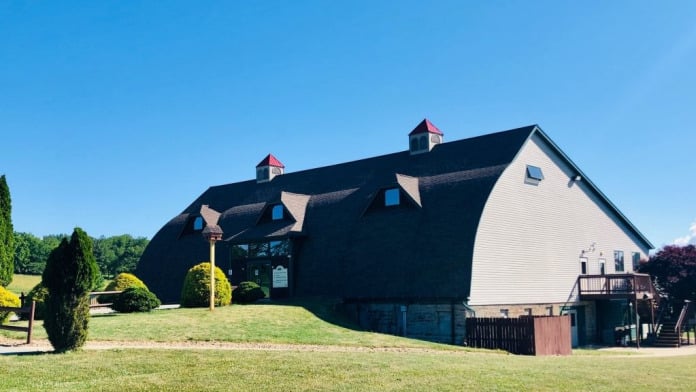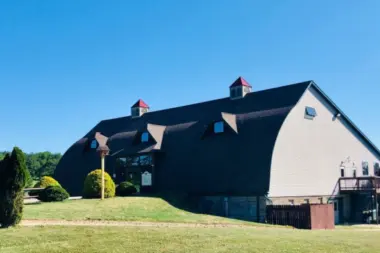About Outside In School
Accredited by the Commission on Accreditation of Rehabilitation Facilities (CARF), reflecting Outside In’s high quality addiction related services, which include: mental health assessment and counseling, intensive outpatient, residential substance use disorder treatment, family care, and comprehensive aftercare.
These assessments help Outside In’s clinical team to determine if youth exhibit symptoms of substance use disorders and co-occurring mental health disorders using a biopsychosocial assessment framework. With the team’s clinical expertise, they can treat both conditions concurrently through a range of counseling services, with young adults alone and with their family members.
Designed for youth, families, and individuals with substance use problems, Outside In’s intensive outpatient program involves participants attending individual and group treatment sessions to enhance coping skills, develop valuable peer support, and learn how to sustain recovery. Sessions are held 3-4 days a week in one of four programs: family first, multidimensional family therapy services, licensed drug and alcohol services, or outpatient substance abuse treatment services.
Outside In has four residential programs, which use evidence based practices to treat addiction and mental health conditions, including the sanctions program for first-time adolescent male offenders; an education program to support youth attain their GED and pursue college; the Voyagers program, an activity intensive social treatment program; and Pathway to Recovery, a program designed to treat addiction and support youth in a drug free life. Treatment begins with an assessment to determine individual needs, and then rehab services are provided based on those results. Staff and clients work together to create individual plans of care.
Outside In recognizes that individuals have different financial circumstances and offers their programs a range of financial options, including self-pay, private insurance, through Medicaid, or for free.
Latest Reviews
Rehab Score
Gallery


Other Forms of Payment
Private insurance refers to any kind of healthcare coverage that isn't from the state or federal government. This includes individual and family plans offered by an employer or purchased from the Insurance Marketplace. Every plan will have different requirements and out of pocket costs so be sure to get the full details before you start treatment.
Self-pay involves paying for treatment out of your own pocket. You can use savings or credit, get a personal loan, or receive help from family and friends to fund your treatment. If you don't have insurance or your insurance plan doesn't cover a specific program, self-pay can help ensure you still get the care you need.
Medicaid is a state based program that helps lower-income individuals and families pay for healthcare. Medicaid covers addiction treatment so those enrolled can use their coverage to pay for rehab. When a program accepts Medicaid the client often pays very little or nothing out of their own pocket.
Addiction Treatments
Levels of Care
Outpatient rehabs specialize in providing comprehensive care for clients who choose to remain in their homes and communities during treatment. Their services may include transitional support for clients stepping down from intensive inpatient programming. Ambulatory medical detox may be provided for clients at low risk for withdrawal complications. Many programs include evening, night, and weekend services to accommodate clients who are working professionals or caregivers. Addiction counseling and life skills training are common treatment modalities.
Residential treatment programs are those that offer housing and meals in addition to substance abuse treatment. A “residential drug-free” (also referred to as inpatient non-hospital) treatment program that combines the evidence-based practices of Motivational Interviewing and the Transtheoretical Model of behavior change.
Clients engaged in intensive outpatient programs (IOP) live and work in their home community while receiving frequent, high-level care. These programs offer personalized care designed to evolve with the clients' changing needs. Many intensive outpatient rehabs require a minimum of nine hours of treatment per week, but high-risk clients and those in early recovery may receive up to 20 hours of care weekly. IOP services generally include addiction counseling, recovery education, and holistic therapies, such as massage.
Clients receiving services from a rehab aftercare program are usually stable and in the maintenance phase of recovery, having completed detox and/or intensive inpatient treatment. Rehab aftercare services can vary widely based on clients' individual and evolving needs, but often include peer coaching, relapse prevention support, 12 step program induction, and medical, mental health, and social service referrals. Individual care plans are typically developed by the client in partnership with their case manager and care team.
Because the severity of withdrawal symptoms can fluctuate, constant monitoring under 24-hour clinical care in Pennsylvania is recommended for early recovery. As you undergo detox, medical staff will supervise your health and ensure severe symptoms do not develop or threaten your life. Professional counselors will also be available to treat mental and emotional health needs.
Treatments
The goal of treatment for alcoholism is abstinence. Those with poor social support, poor motivation, or psychiatric disorders tend to relapse within a few years of treatment. For these people, success is measured by longer periods of abstinence, reduced use of alcohol, better health, and improved social functioning. Recovery and Maintenance are usually based on 12 step programs and AA meetings.
Drug rehab in Pennsylvania is devoted to the treatment of addiction. Levels of care, treatment methods, and settings differ, but the aim of each program is to end drug dependency and empower participants to achieve long-term recovery.
Many of those suffering from addiction also suffer from mental or emotional illnesses like schizophrenia, bipolar disorder, depression, or anxiety disorders. Services are competent for co-occurring disorders and the level of care is determined based on the ASAM Adolescent Patient Placement Criteria.
Opioid rehabs specialize in supporting those recovering from opioid addiction. They treat those suffering from addiction to illegal opioids like heroin, as well as prescription drugs like oxycodone. These centers typically combine both physical as well as mental and emotional support to help stop addiction. Physical support often includes medical detox and subsequent medical support (including medication), and mental support includes in-depth therapy to address the underlying causes of addiction.
Substance rehabs focus on helping individuals recover from substance abuse, including alcohol and drug addiction (both illegal and prescription drugs). They often include the opportunity to engage in both individual as well as group therapy.
Programs
Adult rehab programs include therapies tailored to each client's specific needs, goals, and recovery progress. They are tailored to the specific challenges adult clients may face, including family and work pressures and commitments. From inpatient and residential treatment to various levels of outpatient services, there are many options available. Some facilities also help adults work through co-occurring conditions, like anxiety, that can accompany addiction.
Young adulthood can be an exciting, yet difficult, time of transition. Individuals in their late teens to mid-20s face unique stressors related to school, jobs, families, and social circles, which can lead to a rise in substance use. Rehab centers with dedicated young adult programs will include activities and amenities that cater to this age group, with an emphasis on specialized counseling, peer socialization, and ongoing aftercare.
Clinical Services
Cognitive behavioral therapy (CBT) in Pennsylvania can be helpful to individuals who are experiencing substance use disorder and various mental health conditions. It helps you identify damaging thought and behavior patterns and replace them with healthy ones.
Daily group meetings provide an arena for open communication and constructive criticism. The group assumes responsibility for all its members. Each member learns to function within a group, a situation analogous to family life and their society in general. Voyagers itself does not provide behavioral health care and is not eligible for Medical Assistance funding. Outpatient services that are MA-eligible are billed accordingly.
In individual therapy, a patient meets one-on-one with a trained psychologist or counselor. Therapy is a pivotal part of effective substance abuse treatment, as it often covers root causes of addiction, including challenges faced by the patient in their social, family, and work/school life.
Motivational Interviewing (MI) is a clinical approach to helping people with substance abuse issues and other conditions shift behavior in positive ways. It is more goal-oriented than traditional psychotherapy, as MI counselors directly attempt to get clients to consider making behavioral change (rather than wait for them to come to conclusions themselves). Its primary purpose is to resolve ambivalence and help clients become able to make healthy choices freely.
It is important to process the impact that traumatic experiences have had on your life. During trauma therapy, you and an experienced therapist confront these experiences and the emotional impact it is had. This helps to reduce your symptoms of stress and anxiety and improve your overall mental health and well being.
They recognize the family disruption so often present when a youth enters residential care. We actively engage the family in the development of skills and competencies necessary to restore effective family functioning. Each family is assigned a Master’s level Youth and Family Specialist to identify family strengths and develop specific interventions targeting the needs of that family. Residential care is supported by family sessions, both on-campus and in-home, promoting positive family development. Reintegration and transition support become the focus as discharge approaches.
Life skills are the mental and social skills that are necessary to navigate day to day life. Addiction diminishes or eliminates these skills, so they must be relearned and practiced during drug rehab treatment in Pennsylvania.
Amenities
-
Gym
-
Residential Setting
-
Hiking
-
Walking Trails
Accreditations

The Commission on Accreditation of Rehabilitation Facilities (CARF) is a non-profit organization that specifically accredits rehab organizations. Founded in 1966, CARF's, mission is to help service providers like rehab facilities maintain high standards of care.
CARF Accreditation: Yes
Contact Information
1050 Fort Palmer Road
Bolivar, PA 15923